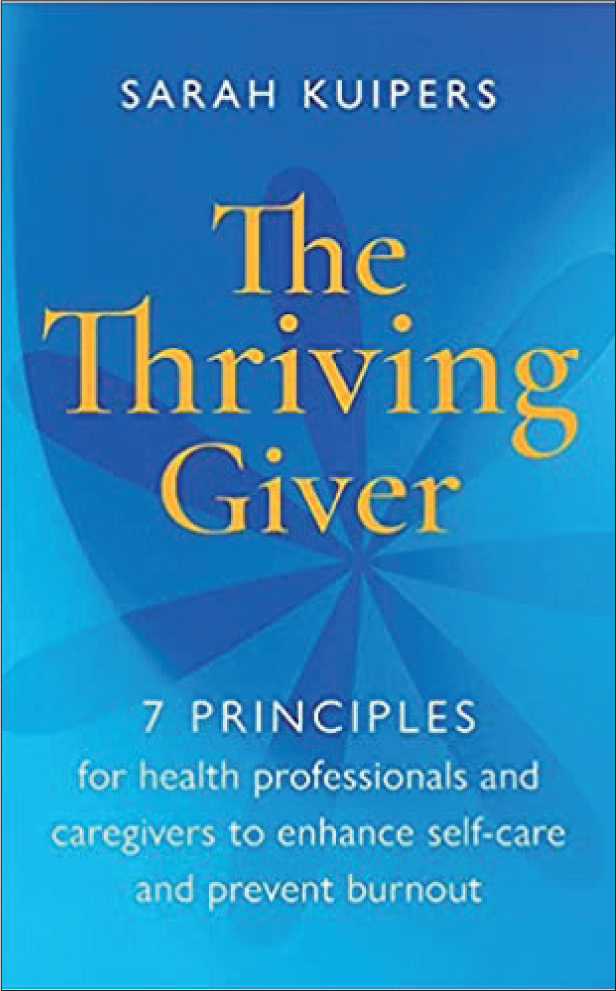
‘The Thriving Giver’ by Sarah Kuipers immediately opens with an engaging conversation with the reader. The aim? To teach others about the experiences that shaped her as an individual today and assist them with developing strong techniques to better manage their mental health. In order to do this, Kuipers shares two main elements which she has learnt in order to master stress and create a thriving life, namely to have a comprehensive range of stress management and self-care resources, and to fully understand what it is that is holding you back from applying those strategies.
She gives her readers not only detailed facts and information on how to use this book but also offers practical methods on how this can be done, such as writing in a reflective journal. One of the core metaphors Kuipers uses that resonated with me is the idea of redesigning your own garden. We need to weed out the dead, overcrowded flowers and make room for the healthy ones to grow. She compares this to us choosing what parts of our lives we wish to keep and those that need to be removed in order for better parts to flourish.
‘We need to weed out the dead, overcrowded flowers and make room for the healthy ones to grow’
Throughout the book, she uses descriptive examples of people's lives in order to relate to her readers and have them develop a deeper understanding of her concepts. For example, when discussing how to prioritise your mental health, Kuipers refers to a woman named Judy and how although her work as a physiotherapist is fulfilling, Judy seems overwork herself to a point that is unhealthy. She makes sure others are taken care of and their needs are met before her own thus making her feel worn-out and depleted at the end of the day. This desire to please everyone else causes her to feel worse about herself which prompted her to seek a life coach. After Judy begins her life-coaching sessions, she begins feeling better and thrives in not only her career but personal life too.
Kuipers explains throughout her book how this way of living is not sustainable and that people should seek to change this behaviour. She concludes this chapter with workbook exercises which teaches the reader how to implement a daily routine of mental health awareness, focus and rectification. These exercises include journaling for 20–30 minutes a day, setting intentions and repeating new beliefs in order to instill them into your life. These exercises, I felt, are an incredible addition because they are a great way to implement self-care into the busiest of schedules. Each chapter identifies a different scenario and problem that people face daily and she really shows how to identify these behavioural patterns, address them and create new beliefs to replace them.
Kuiper is a strong writer who reflects on mental health issues and the need for self-care on a whole new level. I think this book is incredibly helpful not only for healthcare professionals but also for young adults entering the workforce. It will assist them in facilitating healthy ways of thinking in order to prevent future burnout or mental health problems.


